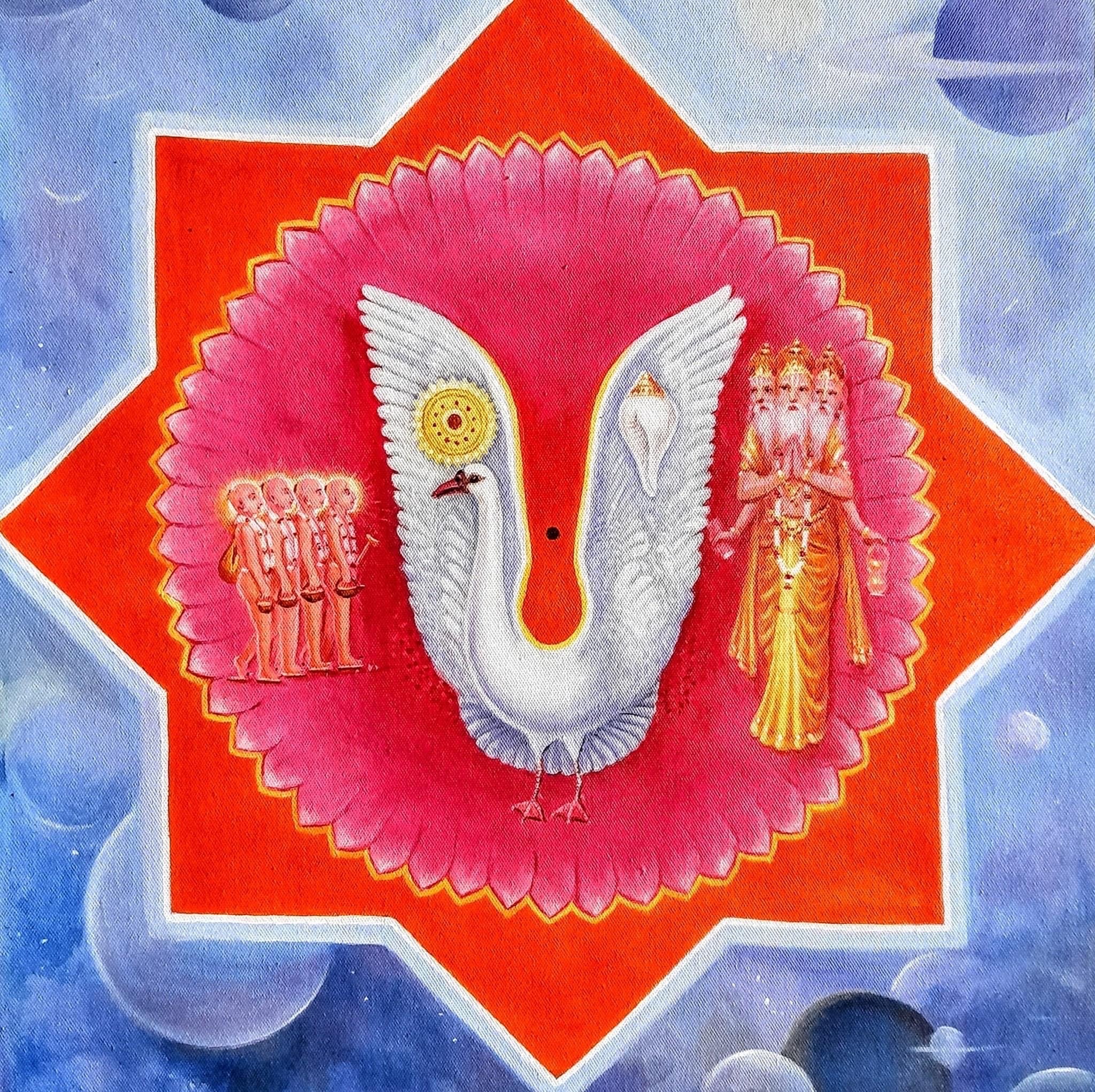निम्बार्क सम्प्रदाय
Nimbarka Sampradaya
The ancient Vaishnava tradition founded by Jagadguru Shri Nimbarkacharya, propagating the sublime philosophy of Dvaitadvaita and devotion to Shri Radha-Krishna
Foundation & History
The Nimbarka Sampradaya is one of the four authentic Vaishnava traditions (Sampradayas) established by Jagadguru Shri Nimbarkacharya in the 11th century CE. Known for its profound philosophy of Dvaitadvaita (dualistic non-dualism), this sampradaya has preserved the ancient Vedic wisdom for over a millennium.
Radha-Krishna Worship
Central focus on the divine couple Shri Radha-Krishna as the supreme deity
Vedic Authority
Based on Vedas, Upanishads, and Brahma Sutras with authentic interpretation
Guru Parampara
Unbroken lineage of spiritual masters preserving pure teachings
Dvaitadvaita Philosophy
This unique philosophical position reconciles the apparent contradiction between unity and diversity. The individual soul (jiva) is eternally distinct from Brahman yet inseparably connected, like waves in the ocean - distinct yet not separate from the water.
- Brahman: The Supreme Reality (Radha-Krishna)
- Jiva: Individual souls
- Jagat: The material world
The soul is simultaneously one with and different from God - sharing divine nature while maintaining individual identity for eternal loving service.
Eternal Relationship
The soul's relationship with God is eternal and natural, not created or achieved. Liberation means realizing this pre-existing divine connection.
Bhakti as Means
Pure devotion (bhakti) is both the means and the end. Through loving service, the soul awakens to its eternal nature and divine relationship.
Spiritual Practices (Sadhana)
Daily Worship
Regular worship of Shri Radha-Krishna through traditional rituals, ceremonies, and devotional singing.
Mantra Japa
Repetition of sacred mantras for purification of consciousness and deepening divine connection.
Study & Reflection
Regular study of sampradaya texts and participation in spiritual discussions with fellow devotees.
Ethical Living
- Vegetarian diet
- Truthfulness in speech
- Compassion to all beings
- Charitable giving
- Regular fasting
Festival Observances
- Janmashtami
- Radhashtami
- Nimbarka Jayanti
- Holi & Diwali
- Ekadashi fasting
Authoritative Texts
Vedanta kaustubha
Nimbarkacharya's commentary on the Brahma Sutras, establishing the philosophical foundation of Dvaitadvaita.
Dasha Shloki
Ten essential verses summarizing the core principles of Nimbarka philosophy and practice.
Jugal Satak
Devotional poetry celebrating the divine pastimes and qualities of Lord Krishna.
Mahavani
Comprehensive compilation of teachings by later acharyas of the sampradaya.
Scriptural Foundation
The Nimbarka Sampradaya bases its teachings on the Prasthana Traya - the three foundational texts of Vedanta: Upanishads, Brahma Sutras, and Bhagavad Gita.
Major Centers Worldwide
Vrindavan, India
The spiritual heart of the sampradaya, home to numerous temples and ashrams including Shri Hari Vyas Nikunja Mandir.
Nimbgram, Rajasthan
Birthplace of Jagadguru Nimbarkacharya, an important pilgrimage destination.
Salempet, Telangana
Historic center where Nimbarkacharya established his philosophical teachings.
International Centers
Active communities in USA, UK, Australia, and other countries spreading Nimbarka teachings globally.
Experience the Living Tradition
Join us in preserving and practicing this ancient wisdom tradition. Discover the profound joy of Radha-Krishna bhakti.
